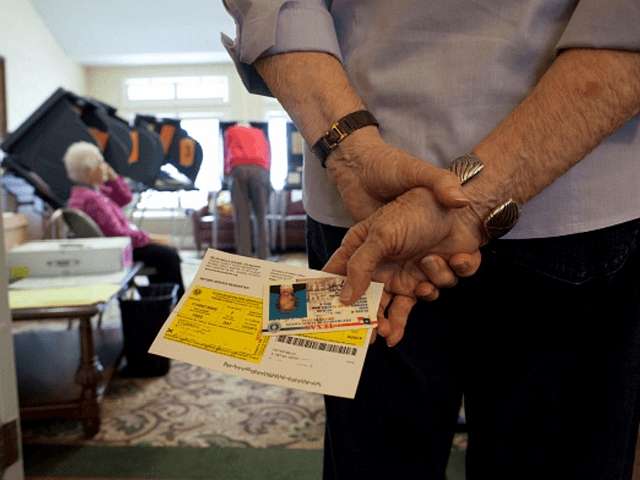The Texas Senate voted Wednesday to pass a bill that cracks down on mail-in voter fraud through increased safeguards and penalties, criminalizing the act of tampering with absentee ballots which compromises the integrity of the election process.
“Any attempt to scam the system and steal another Texan’s vote must be addressed accordingly,” said crackdown bill author Senator Kelly Hancock (R-North Richland Hills) in a prepared statement following the 21-10 vote, largely along party lines.
Legislation “enhancing the detection, persecution, and elimination of mail-in ballot fraud” is one of 2o priority items Governor Greg Abbott called upon lawmakers to pass during the ongoing special session.
Hancock’s legislation, Senate Bill 5, makes tampering with mail-in voter ballots a criminal offense punishable up to a year in jail and $4,000 in fines. The bill also specifies that repeat offender penalties increase to third-degree felony status and that carries a sentence of two to 10 years in prison plus up to a $10,000 fine.
SB 5 creates signature verification checks and balances to better detect fraudulent ballots, shores up protections for those individuals who vote by mail, largely the elderly and the disabled, and requires that rejected absentee ballots suspected of fraud are promptly reported to the Attorney General.
Reportedly, during the Senate’s floor discussion of SB 5, several Democrats, including Dallas Senator Royce West, who said they initially planned to support the bill, backed out because they believed a section of the bill appeared to criminalize certain political discussions among family members when one of them possessed a mail-in ballot.
West later told The Dallas Morning News: “If my mother was filling out a ballot and asked me if she should vote for John Wiley Price, and I told her ‘Yes,’ under this bill I could be prosecuted.”
The bill’s author respectfully disagreed with West’s interpretation. In a statement following the passage of SB 5, Hancock thanked the 21 Senate members who “chose to stand in support of this important legislation.”
One election integrity nonprofit, the Public Interest Legal Foundation, offered measured praise for the advancement of the bill in a tweet Thursday, noting that more needs to be done in shoring up mail balloting security.
The group is led by J. Christian Adams, a member of the Presidential Advisory Commission on Election Integrity.
The Senate’s vote directly followed serious statewide concerns of rampant election voter fraud involving absentee ballots, most notably, in hotly contested Dallas County Democrat races, as Breitbart Texas reported.
The State of Texas accommodates mail-in voting ballots for people who are age 65 or older, disabled, out of the country on an election day and during the period for early voting period to vote in person, or confined in jail but otherwise eligible to vote.
In May, an alleged voter harvesting scheme targeted elderly residents in highly competitive Democrat Dallas city council races threatening the integrity of that election. Breitbart Texas reported that, as a result of mail-in ballot irregularities, county elections officials sequestered 700 suspicious-looking absentee ballots, which temporarily placed the results of the local elections in limbo. Secretly recorded audio later surfaced suggesting the mail-in ballot fraud reached all the way into the county’s elections office. The Dallas County District Attorney’s Office launched a criminal investigation and, soon thereafter, the Texas Attorney General’s office joined the Dallas voter fraud probe at the request of Dallas D.A. Faith Johnson.
On June 2, Johnson issued an arrest warrant for their first suspect, Miguel Hernandez, accused of forging the signature of at least one voter after collecting the elderly resident’s blank absentee ballot. Hernandez then vanished, believed to be on the run. While in absentia, a grand jury indicted him on a charge of illegal voting, a second degree felony and set his bail at $100,000. Police finally arrested Hernandez over a month after issuing the warrant.
Last October, the state opened an investigation into voter fraud allegations in Tarrant County where reports of suspicious mail-in ballots and voter harvesting schemes erupted a month before the November 8, 2016, national election.
SB 5 now advances to the Texas House of Representatives.
Follow Merrill Hope, a member of the original Breitbart Texas team, on Twitter.

COMMENTS
Please let us know if you're having issues with commenting.